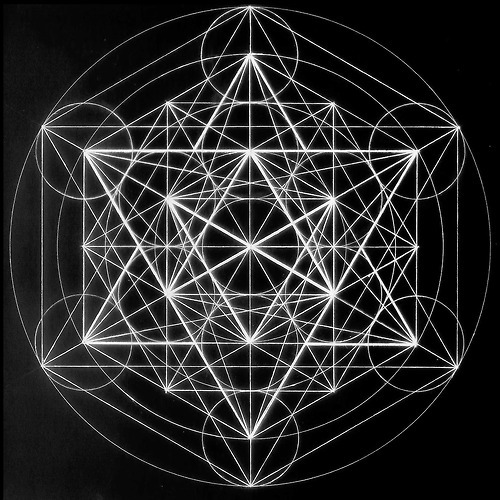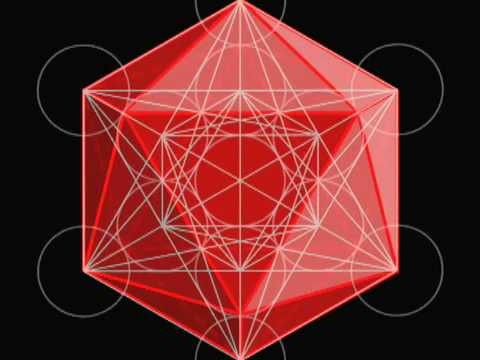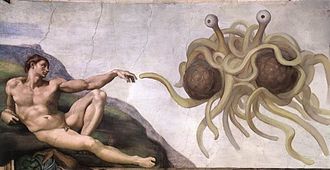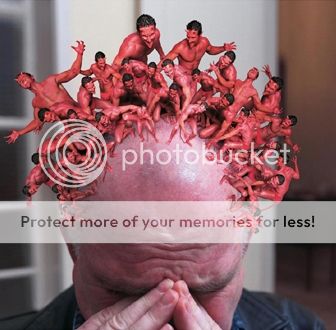-
SCAM WARNING! See how this scam works in Classifieds.
You are using an out of date browser. It may not display this or other websites correctly.
You should upgrade or use an alternative browser.
You should upgrade or use an alternative browser.
Science and Souls (for geeks and spiritual explorers)
- Thread starter Bob Loblaw
- Start date
LaoTzu74747
Active Member
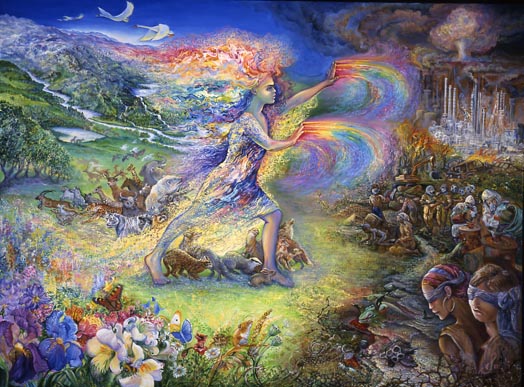
Beautiful images folks!
Bob Loblaw
Astralnaut

lmage by Andrew Ostrovsky


'l don't do drugs ... l am drugs.' Dalí
t-dub
Vapor Sloth
I enjoy understanding the fact that Einstein proved that we are all moving through space-time at the speed of light together. The sum of your velocity through 3D space and your velocity through time always equals the speed of light, thats why time is always relative to the observer and the speed of light is constant. Its incredible really and part of how the fabric of the universe works . . .
Bob Loblaw
Astralnaut
LaoTzu74747
Active Member
If you have ever been a christian or have ever heard of the bible, bill donahue is the guy to tell you what it means.
http://www.hiddenmeanings.com/
Bob Loblaw
Astralnaut
nopartofme
Over the falls, in a barrel
Bob Loblaw
Astralnaut
Bob Loblaw
Astralnaut
I like this one! You can get it engraved in launch boxes now:
that is awesome. i saw that they started doin sacred geometry images as an option. makes me happy. as does this...

and this...

RUDE BOY
Space is the Place
I read , eat , and breath systematic Theology and apologetics . People like Donahue can talk a good talk and if your inclined to ditz 2000 years of writings and tradition and the true definition of Hebrew and Greek terms he tells you what he would like it to mean . Really now . why not just run with new age garbage likeIf you have ever been a christian or have ever heard of the bible, bill donahue is the guy to tell you what it means.
"A course in miracles" or the "Uranta Book" Where it's more obviously made up while being written and traditional terminology is twisted or newly redefined .
Sorry Don't want to sound like a hostile fundamentalist because i'm not . Just a Christian Guy with a foul mouth who loves sex and Herb , You do have to love how in the last 70 or so years anyone holding a Bible spouting out shit "knows the truth". That's just my Two cents . But it does piss me off that just because I believe in Christ and the Bible every one seems to assume I'm some backwards thinking rightwinger .
Just not True . Not all Christians Believe science and faith aren't compatable or the earth is less then ten thousand years old and such . But since only The "I'm not religious only spiritual " minded people with no real faith in anything Are allowed to stereotype others faith I'll stop with that .
Last edited:
Bob Loblaw
Astralnaut
whoa there, rude boy.
you just dropped a lot of judgement, while assuming a lot of the same towards yourself.
even i felt attacked by this
actually, if you reap the OP, you'll find that in here...
while you would find that i may agree with you on bill donahue, and other's of his ilk, i also have deep issues with christianity that go beyond the atypical atheist or new ageist. however, this is NOT the place to engage in such. if you disagree with something here, either bring it up politely or not at all. or as i said, do it in a pm with the poster. or with me for that matter.
also remember...
personally you both are pushing the envelope a bit for me, but i can forgive naivety more than outright and unnecessary disrespect.
i know it's in your name, and i am also a highly confrontational person, i just ask that you look for a point to the confrontation and moderate your communication accordingly. if it's just for you to bleed out your anger, there are other threads for that
all said with love (and not in that passive-aggressive, bullshit, hippie-crite type of way)
peace
you just dropped a lot of judgement, while assuming a lot of the same towards yourself.
even i felt attacked by this
But since only The "I'm not religious only spiritual " minded people with no real faith in anything Are allowed to stereotype others faith I'll stop with that .
i am one of those annoying people who consider myself spiritual, but not religious.
so any method of enlightenment is welcome.
actually, if you reap the OP, you'll find that in here...
anything that is a celebration
of geek culture, science, philosophy, art, or spirituality.
again, this is to celebrate, not argue or challenge.
if you choose to engage in debate, please do it in a personal message.
while you would find that i may agree with you on bill donahue, and other's of his ilk, i also have deep issues with christianity that go beyond the atypical atheist or new ageist. however, this is NOT the place to engage in such. if you disagree with something here, either bring it up politely or not at all. or as i said, do it in a pm with the poster. or with me for that matter.
also remember...
i am not look for palmistry or phrenology or seance workers
nor am i looking for extreme atheists or the dogmatic of any kind.
personally you both are pushing the envelope a bit for me, but i can forgive naivety more than outright and unnecessary disrespect.
i know it's in your name, and i am also a highly confrontational person, i just ask that you look for a point to the confrontation and moderate your communication accordingly. if it's just for you to bleed out your anger, there are other threads for that

all said with love (and not in that passive-aggressive, bullshit, hippie-crite type of way)
peace
Last edited:
Bob Loblaw
Astralnaut
Alex Grey - Cosmic Christ
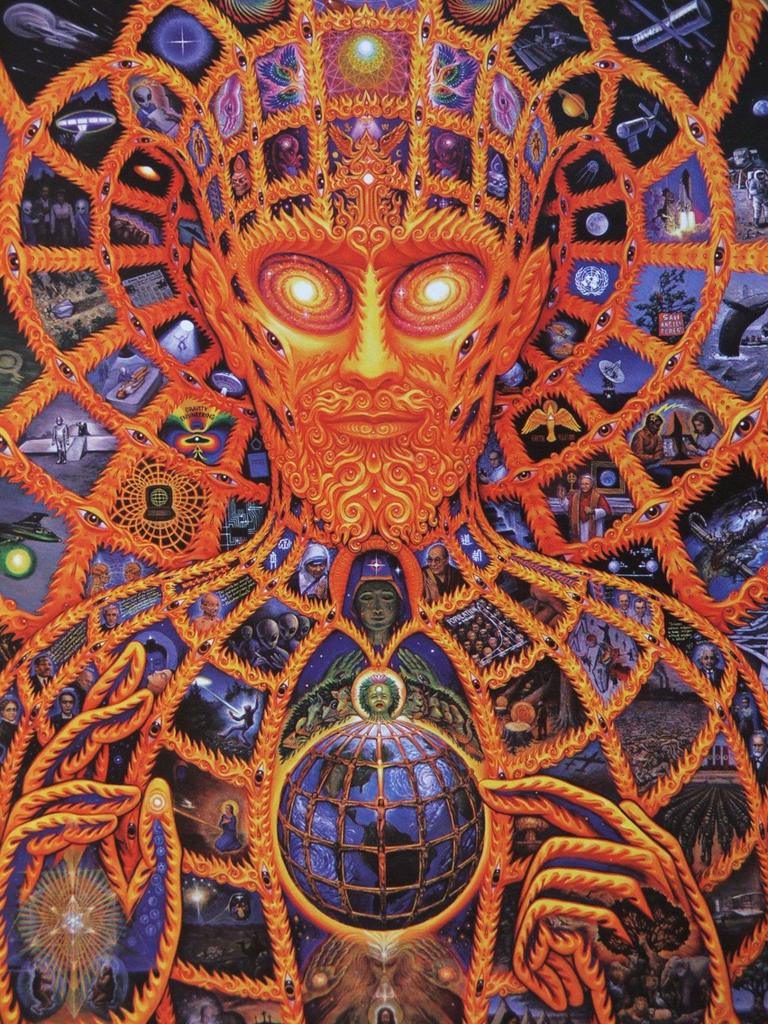
"I've Been There" by Jonathan Solter


"I've Been There" by Jonathan Solter

Bob Loblaw
Astralnaut
I found this the other day that is written by Rob Brezny
(he does the astrology page for the "underground" paper that can be found in one form or another in Seattle, Portland, and a few other cities)
personally i've always been back and forth with astrology. especially after reading about how the pagans had to change their symbols from 13 to 12 during the persecution years.
(makes a lot mores sense. 28 days to a month times 13 equals 364 days in a year)
there is quite a lot of debate about such things between different subsets. although i've found too much in it to dismiss it. and of all the "astrologists" i've ever read, this guy caught my eye, not only due to the title of his column "Free Will Astrology", but by the poetic, celebratory, and "do as tho wilt" attitude.
he recently responded to some dogmatic aethists with this essay which i really enjoyed.
i felt it carried my attitude toward this crossing of the streams.
Rob Brezny
Readers of my horoscope column "Free Will Astrology" are sometimes surprised when I say I only believe in astrology about 80 percent. "You're a quack?!" they cry. Not at all, I explain. I've been a passionate student of the ancient art for years. About the time my over-educated young brain was on the verge of desertification, crazy wisdom showed up in the guise of astrology, moistening my soul just in time to save it.
"But what about the other 20 percent?" they press on. "Are you saying your horoscopes are only partially true?"
I assure them that my doubt proves my love. By cultivating a tender, cheerful skepticism, I inoculate myself against the virus of fanaticism. This ensures that astrology will be a supple tool in my hands, an adaptable art form, and not a rigid, explain-it-all dogma that over-literalizes and distorts the mysteries it seeks to illuminate.
+
During the question-and-answer segment of one of my performances, an audience member got hostile. "Why do you diss science so much?" he complained. "Science is the source of a lot of pronoia, so I would think you'd love it."
My accuser obviously hadn't read much of my work. Otherwise he'd have gathered many clues that belied his theory. In my column, for instance, I often quote reverently from peer-reviewed scientific journals like Nature and Scientific American. And I regularly extol the virtues of the scientific method. "Some of my best friends are scientists," I teased the heckler.
The fact is, I critique science no more than I do all of the systems of thought I respect and use. I believe in science about 80 percent -- the same as I do in astrology, psychology, feminism, Qabala, Buddhism, left-wing political philosophy, and 23 others.
I do think science has the greatest need of loving skepticism, though. As the dominant ideology of our age, it has a magisterial reputation comparable to the infallibility accorded to the medieval Church. Its priestly promoters sell it as the ultimate arbiter of truth, as an approach to gathering and evaluating information that trumps all others.
Here's another problem:Though science is an elegant method of understanding the world, only a minority of its practitioners live up to its high standards. The field is dominated by men motivated as much by careerism and egotism as by a rigorous quest for excellence. This is common behavior in all spheres, of course, but it's a special problem for a creed that the intellectual elite promotes as the premier method for knowing the truth.
There's a further complication: Scientists are no less likely to harbor irrational biases and emotional fixations than the rest of us. They purport to do just the opposite, of course. But in fact they simply hide their unconscious motivations better, aided by the way the scientific establishment relentlessly promotes the myth that its practitioners are in pure service to objective truth. This discrepancy between the cover story and the actual state of things is, again, a universal tendency, not confined to science. But it's particularly toxic in a discipline that presents itself as the very embodiment of dispassionate investigation.
There are many scientists who, upon reading these words, might discharge a blast of emotionally charged, non-scientific derision in my direction. Like true believers everywhere, they can't accept half-hearted converts. If I won't buy their whole package, then I must be a superstitious, fuzzy-brained, New Age goofball.
To which I'd respond: I love the scientific approach to understanding the world. I aspire to appraise everything I experience with the relaxed yet eager curiosity and the skeptical yet open-minded lucidity characteristic of a true scientist.
+
(he does the astrology page for the "underground" paper that can be found in one form or another in Seattle, Portland, and a few other cities)
personally i've always been back and forth with astrology. especially after reading about how the pagans had to change their symbols from 13 to 12 during the persecution years.
(makes a lot mores sense. 28 days to a month times 13 equals 364 days in a year)
there is quite a lot of debate about such things between different subsets. although i've found too much in it to dismiss it. and of all the "astrologists" i've ever read, this guy caught my eye, not only due to the title of his column "Free Will Astrology", but by the poetic, celebratory, and "do as tho wilt" attitude.
he recently responded to some dogmatic aethists with this essay which i really enjoyed.
i felt it carried my attitude toward this crossing of the streams.
Rob Brezny
Readers of my horoscope column "Free Will Astrology" are sometimes surprised when I say I only believe in astrology about 80 percent. "You're a quack?!" they cry. Not at all, I explain. I've been a passionate student of the ancient art for years. About the time my over-educated young brain was on the verge of desertification, crazy wisdom showed up in the guise of astrology, moistening my soul just in time to save it.
"But what about the other 20 percent?" they press on. "Are you saying your horoscopes are only partially true?"
I assure them that my doubt proves my love. By cultivating a tender, cheerful skepticism, I inoculate myself against the virus of fanaticism. This ensures that astrology will be a supple tool in my hands, an adaptable art form, and not a rigid, explain-it-all dogma that over-literalizes and distorts the mysteries it seeks to illuminate.
+
During the question-and-answer segment of one of my performances, an audience member got hostile. "Why do you diss science so much?" he complained. "Science is the source of a lot of pronoia, so I would think you'd love it."
My accuser obviously hadn't read much of my work. Otherwise he'd have gathered many clues that belied his theory. In my column, for instance, I often quote reverently from peer-reviewed scientific journals like Nature and Scientific American. And I regularly extol the virtues of the scientific method. "Some of my best friends are scientists," I teased the heckler.
The fact is, I critique science no more than I do all of the systems of thought I respect and use. I believe in science about 80 percent -- the same as I do in astrology, psychology, feminism, Qabala, Buddhism, left-wing political philosophy, and 23 others.
I do think science has the greatest need of loving skepticism, though. As the dominant ideology of our age, it has a magisterial reputation comparable to the infallibility accorded to the medieval Church. Its priestly promoters sell it as the ultimate arbiter of truth, as an approach to gathering and evaluating information that trumps all others.
Here's another problem:Though science is an elegant method of understanding the world, only a minority of its practitioners live up to its high standards. The field is dominated by men motivated as much by careerism and egotism as by a rigorous quest for excellence. This is common behavior in all spheres, of course, but it's a special problem for a creed that the intellectual elite promotes as the premier method for knowing the truth.
There's a further complication: Scientists are no less likely to harbor irrational biases and emotional fixations than the rest of us. They purport to do just the opposite, of course. But in fact they simply hide their unconscious motivations better, aided by the way the scientific establishment relentlessly promotes the myth that its practitioners are in pure service to objective truth. This discrepancy between the cover story and the actual state of things is, again, a universal tendency, not confined to science. But it's particularly toxic in a discipline that presents itself as the very embodiment of dispassionate investigation.
There are many scientists who, upon reading these words, might discharge a blast of emotionally charged, non-scientific derision in my direction. Like true believers everywhere, they can't accept half-hearted converts. If I won't buy their whole package, then I must be a superstitious, fuzzy-brained, New Age goofball.
To which I'd respond: I love the scientific approach to understanding the world. I aspire to appraise everything I experience with the relaxed yet eager curiosity and the skeptical yet open-minded lucidity characteristic of a true scientist.
+
RUDE BOY
Space is the Place
Sorry Bob and the rest of you all , I did go a overboard and off topic . watchin' some of the video and reading the comment following Just sent me into the Rant . AND IT WASN'T APPROPRIATE FOR ME TO RAG ON THE WHOLE THREAD ,I DO APPOLOGISE . I 'm not always Rude but it pops out now and then .
Edit: want to add that I haven't lived in a box of Christian teaching . When younger I lived for a while in an ISKCON asharam ,studied with Sufi's in turkey , taught TM and in a pre 911 world participated in a monthly Muslim /Christian round table where after a while the lines between us all seemed to disappear. As time went on we became equals and friends .
I don't believe that any one faith Holds all the keys of truth .
Edit: want to add that I haven't lived in a box of Christian teaching . When younger I lived for a while in an ISKCON asharam ,studied with Sufi's in turkey , taught TM and in a pre 911 world participated in a monthly Muslim /Christian round table where after a while the lines between us all seemed to disappear. As time went on we became equals and friends .
I don't believe that any one faith Holds all the keys of truth .
Last edited:
Bob Loblaw
Astralnaut
thanks so much RB, it really means a lot to me. i understand your anger and we all have our triggers. if you ever want to discuss your philosophies i am totally open. was raised in the church and took the "grace of god" lessons with me.
on a related note.
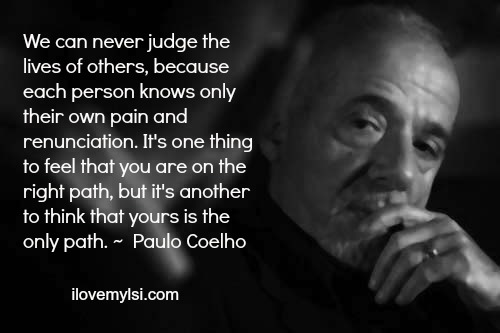
my mom (RIP) made sure that i took this with me when i left the church.
of course at the same time, i hold that thought in my head i hold this one...
There's almost as much senseless killing in this world as there is senseless living - Jay Grossman
on a related note.

my mom (RIP) made sure that i took this with me when i left the church.
of course at the same time, i hold that thought in my head i hold this one...
There's almost as much senseless killing in this world as there is senseless living - Jay Grossman
Last edited:
Bob Loblaw
Astralnaut
no ben, just no


LaoTzu74747
Active Member
You guys all Bill Donahue asks is that you don't read the bible literally, the entire book is code! That's all he is saying. David didn't literally sling a rock at Goliath. That was a parable in order to teach a lesson. That's all he is saying. If you read the whole bible literally, you will miss the point entirely. It is not a history book.
And hey Bill Donahue says, you don't have to believe me, you don't have to believe anyone. That's true 'spirituality', everyone is on there own path, you know?]
Hey i'll just say that I'm not trying to convert anyone, i'm not trying to stop you from being a christian, that's fine, you know? Do whatever you want, i'm just saying that in my opinion Bill Donahue interprets the bible correctly. IF you disagree that's fine. All the teachers that i admire don't ask you to JOIN them. They say here's what i have got and you make of it what you make of it.
And hey Bill Donahue says, you don't have to believe me, you don't have to believe anyone. That's true 'spirituality', everyone is on there own path, you know?]
Hey i'll just say that I'm not trying to convert anyone, i'm not trying to stop you from being a christian, that's fine, you know? Do whatever you want, i'm just saying that in my opinion Bill Donahue interprets the bible correctly. IF you disagree that's fine. All the teachers that i admire don't ask you to JOIN them. They say here's what i have got and you make of it what you make of it.
Last edited:
Bob Loblaw
Astralnaut
alright now you've both made your points. topic closed






